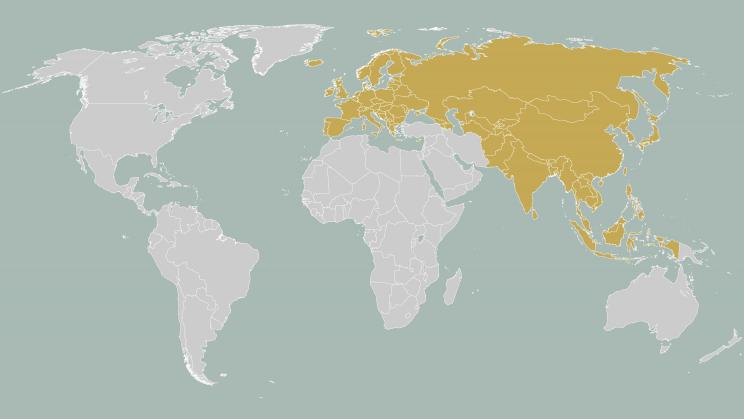Archived research
This page is for historical purposes and is no longer maintained
Russia and Eurasia
The Eurasian landmass has become a key region at the intersection of shifting regional security interests between Russia and the other post-Soviet states, Europe, Asia and the Middle East. Protracted conflicts continue to harm peace and security, while new armed conflicts have appeared undermining regional stability.
Russia has re-emerged as the central actor in Eurasia, with an agenda of integration and the ambition to establish Eurasia as a distinct political and security space. At the same time, a variety of other leading international actors are increasingly engaged with security issues in the region and seeking to deepen relations with the countries of Eurasia, including the United States, the European Union, China, Turkey, and Iran.
SIPRI aims to analyse the complex security and conflict dynamics of the region with a particular focus on Russia, the Caucasus, Central Asia, Eastern Europe and the Arctic in order to identify the principal trends concerning:
- Protracted and armed conflicts
- Militarization and defence spending
- Regional and international security organizations
- Russia as a regional and international security actor
- Competition and cooperation between Eurasia, Asia, European and Middle Eastern security actors
- Efforts to promote cooperation, security and peacebuilding in the region
